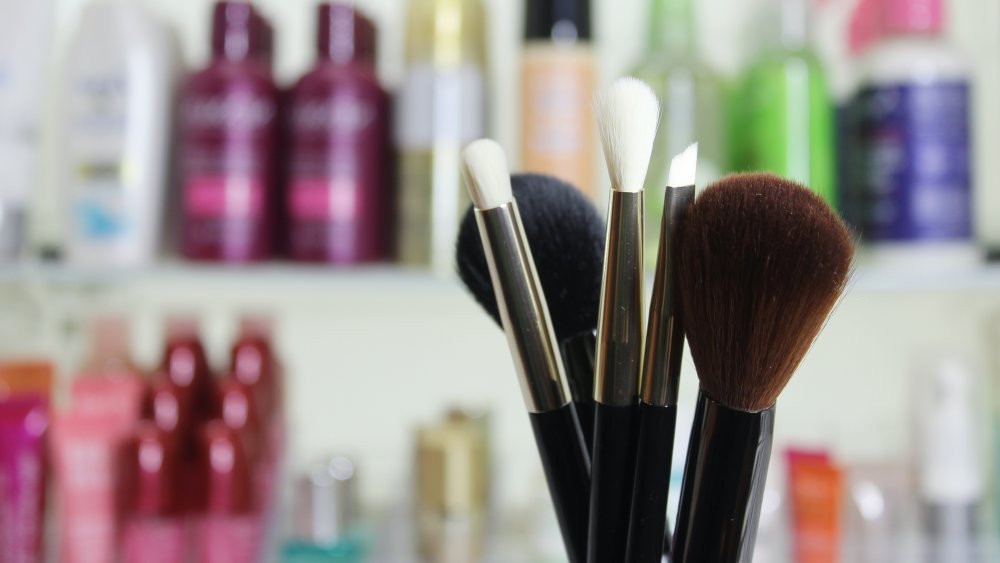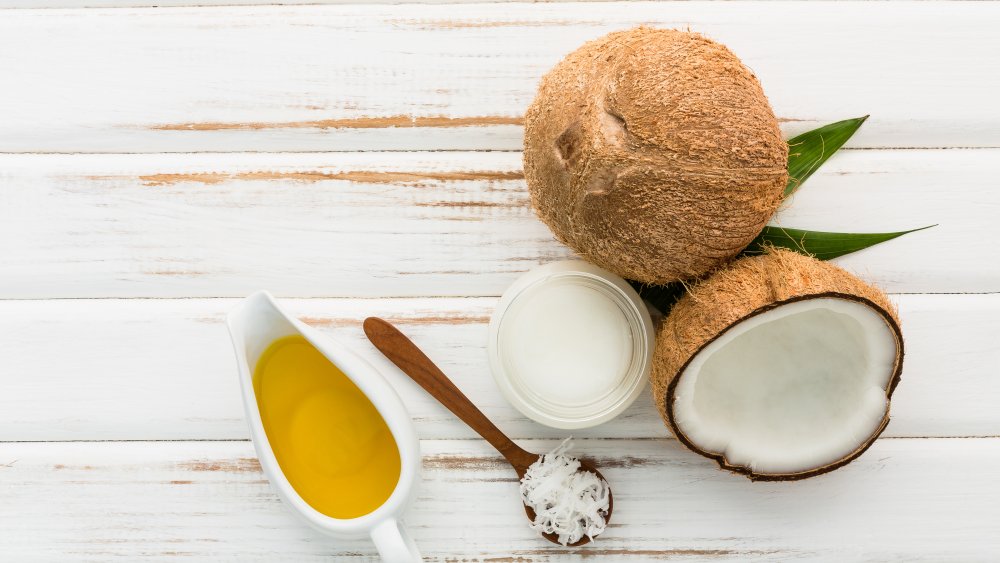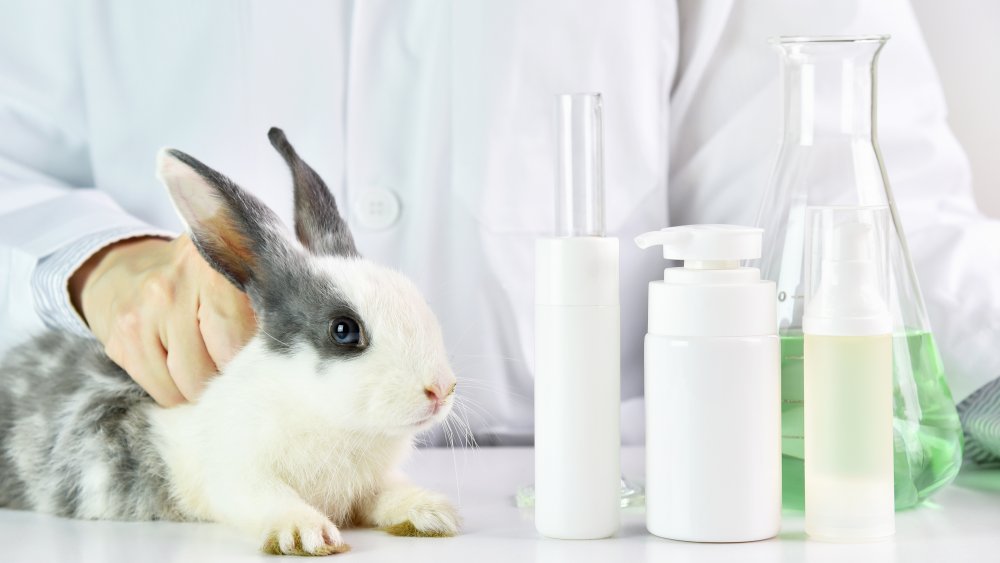The Real Difference Between Vegan And Cruelty-Free Makeup
Consumer choices being what they are, buying beauty products that reflect our core values should be a straightforward exercise, particularly since we expect labels to clearly indicate what cosmetics are... but do they?
Publications like Harper's Bazaar warn that what we see isn't necessarily what we get these days. Because consumers are attracted to product attributes like "organic" or "natural," companies have become more adept at describing their beauty products so that what their labels say hide as much as they reveal.
"Vegan" and "cruelty-free" are two such labels. Because consumers are becoming more aware of issues involving animal cruelty, they are more inclined to pick up cosmetics that don't involve animals at all, including animal-based ingredients and testing on animals. As a result of this preference, the size of the global vegan cosmetics market is expected to reach $20.8 billion by 2025 (via Research and Markets).
Vegan doesn't have to mean natural, organic, or cruelty-free
But "vegan" and "cruelty free" are not synonymous, and not all things vegan are cruelty-free.
In order for a product to be vegan, it cannot be made with any animal products, or any products that are derived from animals. As Harper's Bazaar points out, vegan makeup can be full of chemicals and thus, have products that might have been tested on animals somewhere during the initial stages of its production process, which means that not all vegan makeup is cruelty-free.
In fact, many "natural" ingredients come from animals — fish scales are used to make your lipstick shimmer, crushed beetles give it color, and your lotions could be made with a substance derived from sheep's wool — all of which means the products aren't vegan at all.
Cruelty-free can be a misleading label
Technically speaking, a product can only be considered cruelty-free if the product itself, its ingredients, and components have not been tested on animals. But unless it comes with the Leaping Bunny logo, the "cruelty-free" or "not tested on animals" labels can be difficult to decipher too, because a product can be vegan and cruelty-free, but the products are also sold in countries whose governments mandate animal testing on imported cosmetics, which may not be ok for a vegan consumer with strict ethical standards (via Faith in Nature).
With labels being what they are today, animal rights and vegan groups say it's best to stick to recommendations made on sites like Leaping Bunny which represents an anti-animal testing coalition that promotes a clear standard, making it easy to shop for animal-friendly products in the process.


